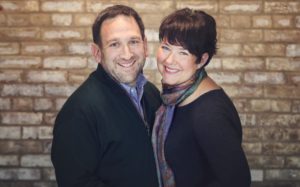Last weekend Dan and I, along with my parents, attended the Midwest Metastatic Breast Cancer Conference. It was interesting and we learned a lot about medical research, clinical trials, palliative care, integrative health, and advocacy and got to connect with others living with MBC. Dan co-led a session on being a caregiver and that, combined with some thinking I was already doing, has me reflecting on the role of caregivers.
The life of a caregiver is tough. Always putting the needs of the “care-getter” above their own. Sacrificing personal wants and needs for the other. And sometimes minimizing their own emotions and feelings of sadness about their loved one’s illness in order to keep a brave face.
As a care-getter with an amazing caregiver, I need to remember how hard this is for Dan. My cancer affects him deeply . . .And, he is allowed to show it. To others and to me.
For the last couple of weeks, I’ve noticed Dan feeling more down than usual. He was going about his day-to-day life, but I sensed an unusually deep layer of sadness and discontent. Kind of one of those things that when I was healthy I’d wonder whether I’d done something to piss him off! But this time I heard the voice in my head saying: “Of course he is sad, his wife has a terminal illness.” Dan’s life has been turned upside down. Much of what we had hoped for and expected from our lives together is different now.
It is interesting to experience how our relationship has changed since the early days of my diagnosis. Moving from “deal” mode, to settling into the ongoing reality that this is our life now.
How do I as a care-getter support my caregiver? Can our roles ever switch back and forth? I’ve been trying to encourage Dan to do things that are fun for him and that don’t necessarily include me. However, he is often hesitant to do that because he wants to maximize our time together. But self-care for both of us is now more important than ever. How do I help him with his? Is there a way for us to have days where we step out of our caregiver/getter roles? Maybe not but perhaps we can redefine those roles to fit where we both are and what we both need right now.

